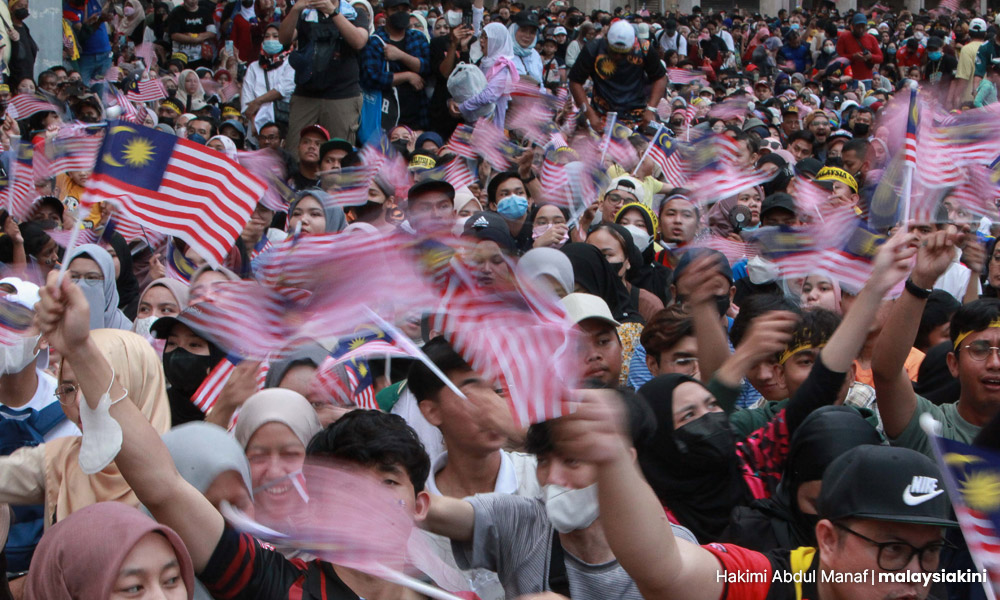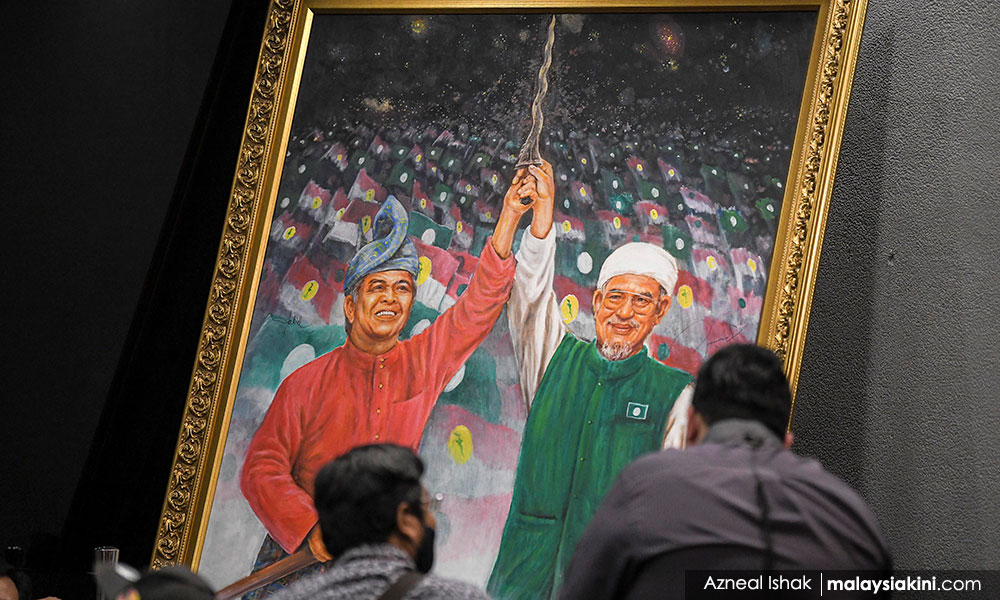The jailing of former prime minister Najib Abdul Razak, which demonstrates the power of votes, has encouraged some to talk about a replay of Pakatan Harapan’s 2018 victory. Perhaps they believe this is the only way the coalition can “get out the votes”.
If a replay of 2018 can excite Harapan voters, would it not also alarm Umno and PAS voters who want them to join forces, and turn the 15th general election (GE15) into an ethnic census?
Some opinion leaders even think Harapan can win in a showdown between multi-ethnic politics and Malay-Muslim nationalism, apparently because the two successive governments after Harapan have performed poorly.
What if BN or Perikatan Nasional (PN) gets more votes despite their “poor performance”? Many Harapan supporters would explain that such voters are living in rural areas (ignoring that 78 percent of Malaysia’s population live in urban areas) and are suffering from a digital divide (ignoring that 97 percent of Malaysians use the internet).
It’s basically saying, in a polite way, that those who vote for BN or PN are stupid.
Multi-ethnic politics at best a plurality
Thinking that multi-ethnic politics must prevail over Malay-Muslim nationalism is like thinking that healthy but boring food must prevail over oily or sweet junk food. Here are three cruel facts.
First, like consumers, voters are not always rational. Most choose what makes them comfortable at the present, not what benefits them in the longer run.
Second, multi-ethnic politics is more complex than boring healthy food.
Why? Unlike politics, there is more or less what most nutritionists agree to be healthy food, but there is no ready consensus on what multiethnic politics should be. We can start with two big questions.
Should religion be made a completely private matter in which the government totally stays out of (secularism in the strictest sense)?
Should ancestry - perhaps except for the indigenous peoples - be completely excluded from state policies on competition or affirmative actions (absolute colour-blindness in meritocracy or social justice)?

If the answers are “yes” for both questions, then this purist form of multi-ethnic politics may be supported by less than 20 percent of voters. (I can imagine not just Malays, but even Indians and Borneo natives objecting to pure meritocracy).
Without a consensus on both the questions of state-religion relations and economic equality, the social coalition of voters in support of multi-ethnic politics espoused by Harapan is fluid and fragile.
Dangling shifts on these two questions in either direction can threaten to disintegrate the social coalition. That’s why Harapan Malay politicians are constantly challenged to take a pro-Malay-Muslim stand on hot potato issues involving ethnicity and religion.
Third, even when defined very loosely, such that what was offered by Harapan against Najib’s kleptocracy, multiethnic politics can command at best a plurality.
Many supporters of Harapan like to think or claim that majority voters voted in for a New Malaysia on May 9, 2018.
If that was true, then that majority consisted of 48 percent Harapan supporters and 17 percent PAS supporters.
Alternatively, if they mean a New Malaysia defined in the Harapan mould, then its supporters constituted only a 48 percent plurality. That 48 percent is immediately a minority once BN’s 34 percent and PAS’ 17 percent join forces, as what Muafakat Nasional (MN) tried to achieve under a Harapan government.
Harapan’s limited options and tough choices
Harapan has to accept this brutal reality that even a minimally defined multi-ethnic politics may win only a plurality. Here are how it limits Harapan’s options, leaving it with tough choices.
If Harapan tries to water down its multi-ethnic politics to appeal to more Malay-Muslim voters, it will alienate enough minority/liberal voters who may cast protest votes or not vote at all.
This is one reason why “Big Tent” (where Harapan is concerned, it is getting back a Malay-nationalist party as an ally) would backfire, which PKR deputy president Rafizi Ramli and his allies rightly reject.
On the other hand, if Harapan tries to win GE15 by again selling the 2018 promises, not only would it not be able to convince realist voters, but it may also terrify the Malay-Muslim nationalist constituencies to push Umno-PAS into their third alliance. (MN was the second alliance as the first happened in 1972-77, after May 13).

The best chance Harapan has in GE15 is to win as many seats as possible with its multi-ethnic base so that it may become the senior partner in the post-election coalition government with one of the two Malay-Muslim nationalist blocs and GPS. Harapan can still be the second partner in government if it wins the second-largest number of seats.
In either scenario, the Malay-Muslim partner that can arrest the Malay-Muslim fear is more likely BN instead of PN. And BN would also prefer Harapan over PN, with which it has more overlapping winnable constituencies.
Beyond acknowledging that GE15 would produce a hung Parliament that it cannot rule on its own, Harapan must show commitment – not just in its federal manifesto, but by implementation in Selangor, Penang and Negeri Sembilan – that it would treat the opposition fairly.
Harapan sources say their voters need the talk of 2018 replay to be excited and come out to vote.
Yes, that is the natural response when your base is still trapped in the winner-takes-all two-coalition game, as you have fed them with the “backdoor government” narrative for two and half years.
But it’s exactly the winner-takes-all mentality amongst Harapan voters that the Malay Unity movers need to bring Umno and PAS together.
Keep talking about 2018 and Harapan may land itself in a nightmare. Don’t say you are not warned. - Mkini
WONG CHIN HUAT is an Essex-trained political scientist at Sunway University working on political institutions and group conflicts. Mindful of humans’ self-interest motivation while pursuing a better world, he is a principled opportunist.
The views expressed here are those of the author/contributor and do not necessarily represent the views of MMKtT.




No comments:
Post a Comment
Note: Only a member of this blog may post a comment.